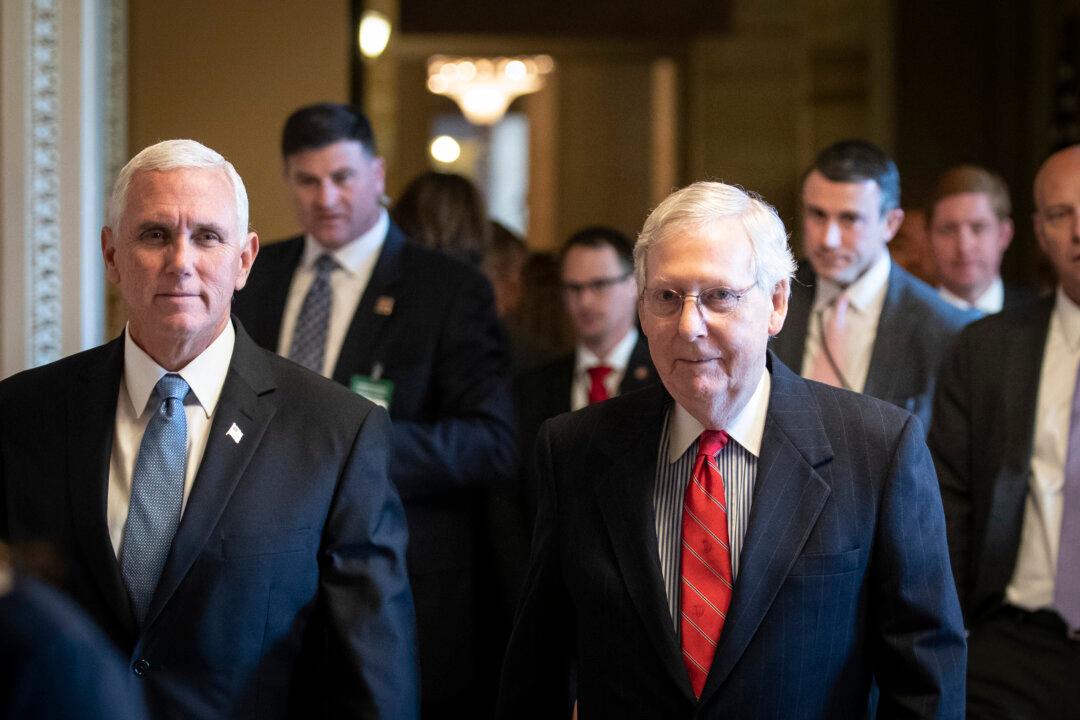Senate Majority Leader Mitch McConnell (R-Ky.) said that House Democrats appear likely to impeach Republican President Donald Trump, but he doesn’t think the Senate will convict Trump.
“I will say, I’m pretty sure how it’s likely to end. If it were today, I don’t think there’s any question it would not lead to a removal. So the question is, how long does the Senate want to take. How long do the presidential candidates want to be here on the floor in the Senate instead of in Iowa or New Hampshire,” McConnell told reporters at the weekly Senate Republican leadership press conference on Nov. 5, referring to Democratic presidential candidates such as Sens. Elizabeth Warren (D-Mass.), Bernie Sanders (I-Vt.), and Cory Booker (D-N.J.).





